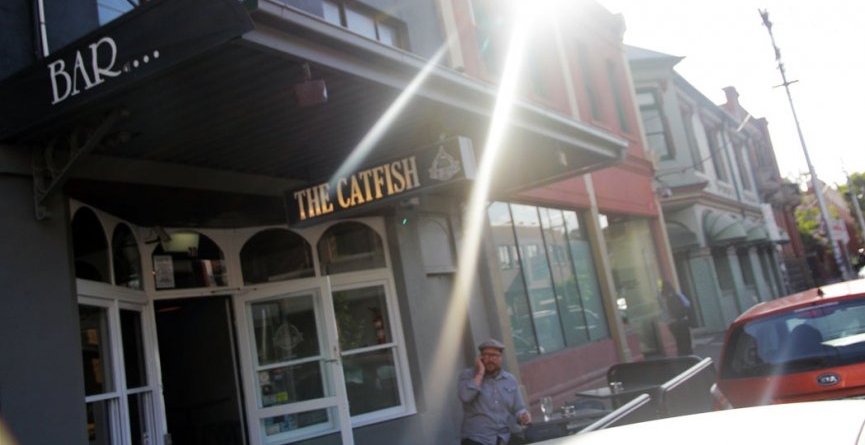“Good Ship went through four drummers in their first year,” Lees recalls. “I don’t know if there was some kind of Spinal Tap thing happening, some gardening accident or spontaneous combustions, but I’ve somehow survived. One thing I really liked when I joined is, I saw them being quite filthy, quite funny, but underneath there was something dark. A kind of Nick Cave vibe beneath some of the music, and that was the part that really attracted me. We’ve only got maybe five or six songs that have that nautical theme, but it’s kind of what has branded the band. We tend to go more for the dark, fucked up cabaret feel. You can come perilously close to being a band that only sings about certain topics – turn into a novelty band, you know? We didn’t want to do that, but we wanted that aspect in there somewhere. We wanted it to be quite a moveable thing we can just play with as needed.”
To that end, they’ve been hugely successful. Few bands can claim to be as malleable as The Good Ship over the years, and also retain their audience and creative core. This was put to the test when one of the band’s founding members – and principal singer/songwriter – Daz Gray departed at the end of 2013, presumably clutching a faded treasure-map to his chest and cackling wildly as he disappeared into the jungle.
“That had two really big effects on the band,” Lees says. “The first was that a very large amount of material we just couldn’t perform any more, because they were Daz’s songs. So we lost a large amount of our repertoire. It also affected Brett Harris, the other singer-songwriter on the album, who had two songs on the second album, one song on the first and a couple of new ones coming up.” Lees sighs, and for the rest of the interview, while he’s quick to laugh and seems at ease with the band’s decision, he sounds saddened by the impending end.
“We were needing to fill that space,” he continues, “which Brett totally stepped up to do, and wrote a whole lot of new music. I think Good Ship for him, but also for everybody, gave this huge boost in confidence for our individual recordings and projects. But I think what happened is, he wrote all of these songs that just weren’t really Good Ship songs. Some were, but a lot weren’t. So things got really hard for him. I think he felt like he didn’t want to apply this arbitrary condition to what he wanted to be doing. As a songwriter it was really challenging to him, and in the end, as his songwriting was developing, well…” Lees pauses. “It was developing away from the band. Not choosing to, but that’s how it was. And I think eventually he felt it was pulling him away from where he thought he should be going.”
Harris wasn’t the only one feeling change in the air. The only thing worse than seeing the project you love come to a close is seeing it pushed to the point of exhaustion, where your workload muddies the memories of grander times.
“I think everyone was feeling it, and we all had those conversations,” Lees says. “But it wasn’t some great big, nuclear doomsday screaming-fest at all. Everyone in the band are adults – most of the time [laughs]. Over time we all came together and knew that this is what we really should do.
“There was definitely a sense of, ‘Well, we have six years of work and what do we have to show for it?’ A hell of a lot. I don’t think there’s anyone thinking, ‘Well, we put a whole lot of work in and we got bloody nothing’. We have three albums, videos, a fantastic trip to Canada, we have the stage musical [The Seven Seas]. We stretched ourselves artistically, we stretched ourselves as an Australian band, and we had a lot of fun.”
And now, we find ourselves with but two final shows; the last chance to see, the last chance to play.
“I hope audiences are going to walk away feeling that we have paid them respect,” Lees says, “and that we have shown them how much we appreciate them. That’s the main thing. I know so many people, friends and fans, and I see those people sharing our videos on Facebook, they come to the shows, they like our posts – I just think, ‘Wow.’ That is a just a lovely thing to have in your life, we’re really lucky, and we’re about to say goodbye to that. We want to give them as good a show as we possibly can, because it’s their last show as well as ours. That’s what I would like audience members to remember.”
BY ADAM NORRIS







